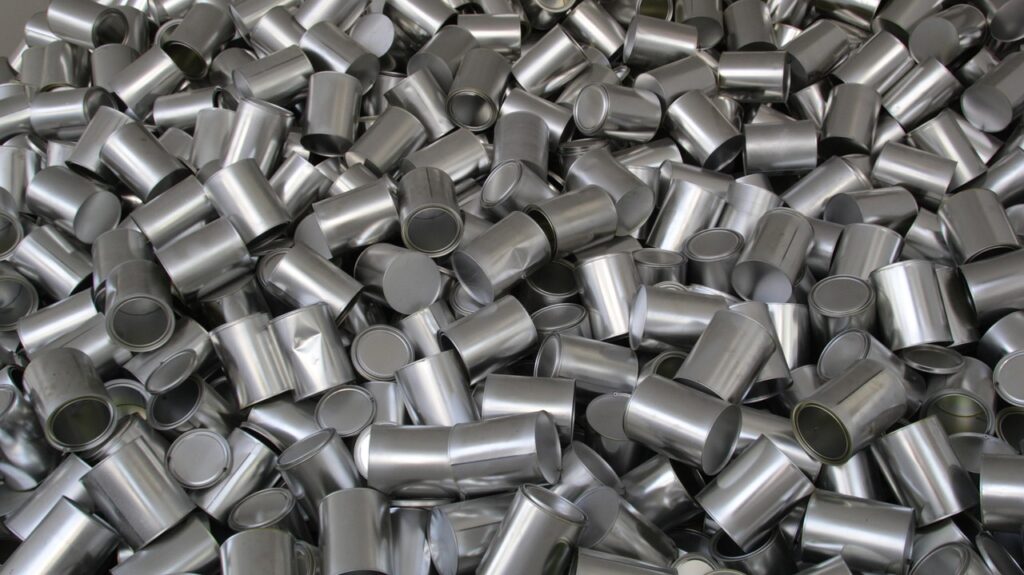For the ordinary layman, there is not much difference between steel and aluminum. The truth is, they are two different materials.
So what’s the difference?
If you want to find out, then read on.
Understanding the Materials
When considering a new carport, one of the first decisions involves choosing between steel and aluminum. Both materials offer unique benefits and serve different needs depending on your location, budget, and long-term expectations.
Steel is known for its strength and durability, often favored in commercial applications or regions that experience severe weather. Aluminum, on the other hand, is lightweight and resistant to corrosion, making it a popular option for residential carports.
Steel is an alloy composed mainly of iron and carbon. It is one of the strongest materials available for carports and is capable of supporting heavier loads. Aluminum is a naturally occurring element known for its light weight and resistance to rust. These properties make aluminum carports easier to install and maintain, especially in coastal areas.
The differences in material composition contribute significantly to the performance, cost, and maintenance of your carport. Understanding how each material behaves under different environmental conditions will help you make a more informed choice.
Durability and Strength
Steel carports are incredibly strong. Their load-bearing capacity allows them to withstand heavy snow, intense winds, and potential impacts from falling debris. This strength makes steel an ideal choice for areas that encounter extreme seasonal changes. It also offers peace of mind in terms of protecting valuable vehicles or equipment.
Aluminum carports, while durable, do not offer the same level of structural strength. They are more susceptible to denting or bending under pressure. However, aluminum does not rust, which is a distinct advantage in humid or rainy climates. Although it is not as robust as steel, aluminum remains a viable option for mild weather zones and light-duty protection.
If long-term structural integrity is a top priority, steel is the superior choice. For users seeking a corrosion-resistant option with easier handling, aluminum provides a compelling alternative.
Installation and Weight
One of the key advantages of aluminum is its light weight. This characteristic simplifies transportation and reduces labor during installation. Aluminum carports can be assembled more quickly, often requiring fewer people and less equipment. This efficiency can result in lower installation costs.
Steel carports, due to their density and weight, demand more effort and time for installation. The process often requires professional assistance and heavy lifting tools. These factors contribute to higher initial installation expenses. However, this investment may be justified by the added strength and longevity.
The ease of installation is an important consideration if you plan to erect the carport yourself or within a tight timeframe. Lightweight aluminum may be ideal for quick projects, while steel is better suited for permanent, high-strength installations.
Maintenance and Longevity
Steel carports typically require more maintenance than aluminum ones. To prevent rust, steel structures must be coated or painted regularly, especially in areas with high humidity or salty air. Galvanized or powder-coated steel offers additional protection but still necessitates periodic inspection and upkeep.
Aluminum’s natural resistance to corrosion significantly reduces maintenance needs. It does not need frequent painting or coating and can endure wet conditions without deteriorating. This makes aluminum a convenient and cost-effective material in the long run for users looking to minimize upkeep.
Both materials can last many years with proper care. Steel, when maintained correctly, can outlast aluminum in terms of strength. Aluminum maintains its appearance and structural integrity longer in corrosive environments.
Cost Considerations
Steel carports usually have a higher upfront cost due to the price of the material and the more complex installation process. Additional expenses may also arise from protective coatings and regular maintenance. However, steel’s durability can translate into long-term savings if the structure requires fewer repairs or replacements.
Aluminum carports are generally less expensive initially. Lower labor costs and minimal maintenance further add to the savings. The affordability of aluminum makes it a popular choice for budget-conscious homeowners seeking basic protection.
Evaluating both short-term affordability and long-term value is essential. Investing more in steel might offer better protection and lifespan, while choosing aluminum can fulfill essential functions without exceeding your budget.
Aesthetic Options
Both steel and aluminum carports come in various designs and finishes. Steel is often associated with a more industrial appearance. It can be powder coated or painted in multiple colors, providing some degree of customization. It can be adapted to match existing architectural styles with the right finish and detailing.
Aluminum carports typically feature cleaner lines and a more modern look. The material is easier to shape and mold, allowing for more design flexibility. Aluminum can also be anodized, giving it a sleek and polished appearance that complements contemporary homes.
Visual appeal plays a crucial role, especially for residential properties. Choosing a material that harmonizes with the rest of your property can enhance overall curb appeal.
Environmental Factors
The climate of your location should strongly influence your choice. Steel performs best in cold, snowy, or storm-prone areas where strength is critical. Its resistance to physical impact makes it suitable for rugged environments. However, in hot and humid regions, steel is prone to corrosion if not adequately protected.
Aluminum excels in coastal or tropical settings where moisture is a constant factor. Its resistance to rust and light weight make it a practical option for regions with mild winters and high humidity. Though it may not perform as well under heavy snow loads, it offers reliable coverage for less intense climates.
Considering the environmental conditions where the carport will be placed ensures that your investment will endure over time.
Sustainability and Recycling
Both steel and aluminum are recyclable, making them environmentally friendly choices. Steel has a slightly higher recycling rate and is commonly reused in the construction industry. It maintains its strength even after multiple recycling cycles, contributing to sustainable building practices.
Aluminum is also widely recycled. It retains its corrosion resistance and lightweight properties through the recycling process. The energy required to recycle aluminum is significantly lower than producing it from raw materials, adding to its environmental benefits.
Selecting a recyclable material supports eco-friendly initiatives and reduces the environmental impact of your construction project.
Structural Flexibility
Steel’s rigidity lends itself to larger spans and taller structures. This makes steel ideal for carports that need to house oversized vehicles or include extra storage. The strength of steel allows for greater design versatility in larger-scale projects.
Aluminum is more suitable for smaller carports. Its flexibility makes it easier to shape, but this also limits its load-bearing capacity. For residential use or compact spaces, aluminum provides adequate coverage without overbuilding.
Understanding the scale and complexity of your carport needs will help determine which material is more structurally appropriate.
Resale and Property Value
Installing a steel carport can add substantial value to your property, especially in regions where durability is a key concern. Prospective buyers may appreciate the added protection and strength that steel provides. A well-maintained steel carport can be a long-lasting asset that appeals to future homeowners.
Aluminum carports can also enhance property value, particularly in areas where aesthetic appeal and corrosion resistance are important. Their sleek appearance and low maintenance make them attractive features for potential buyers.
Investing in a carport that aligns with local market preferences can improve your property’s resale potential.
Conclusion
Choosing between steel and aluminum carports depends on several key factors including climate, budget, maintenance expectations, and intended use. Steel offers superior strength and durability for demanding environments, while aluminum provides corrosion resistance and easier handling for milder conditions. Each material brings its own set of advantages, and the best choice is one that aligns with your specific needs and property goals. Evaluating all these aspects will lead to a decision that delivers protection, value, and satisfaction for years to come.

